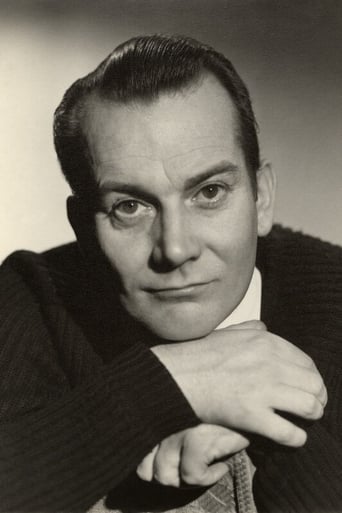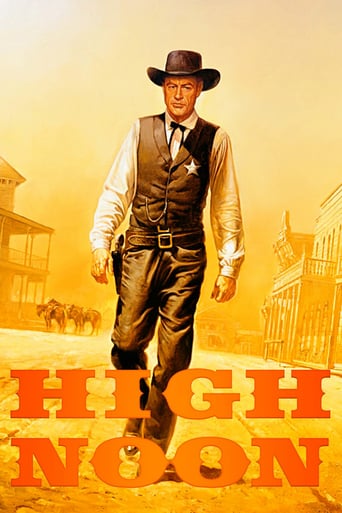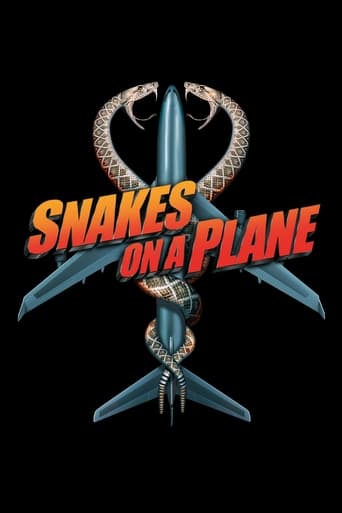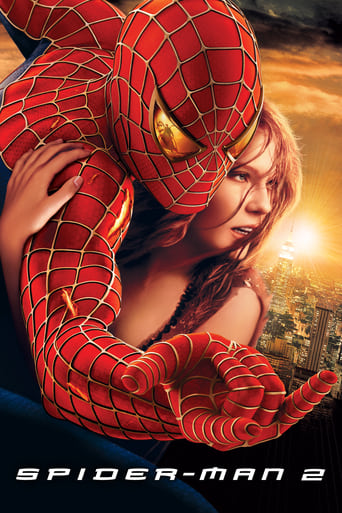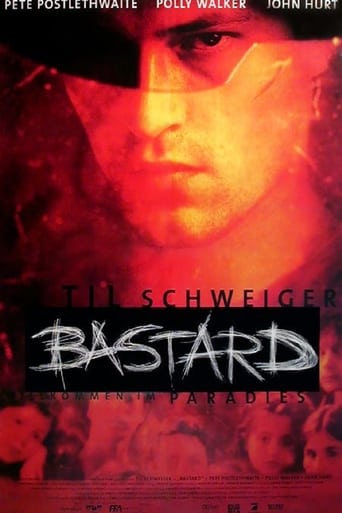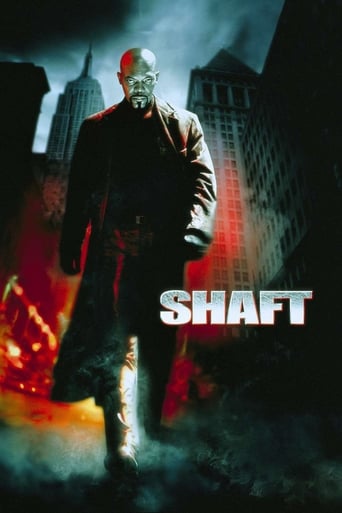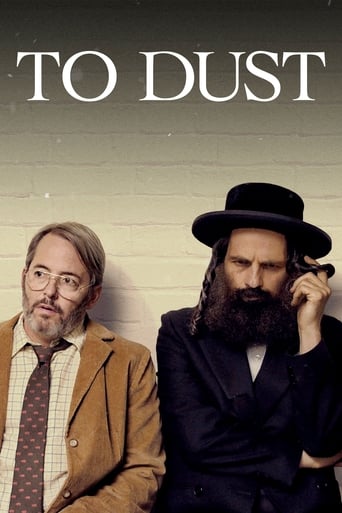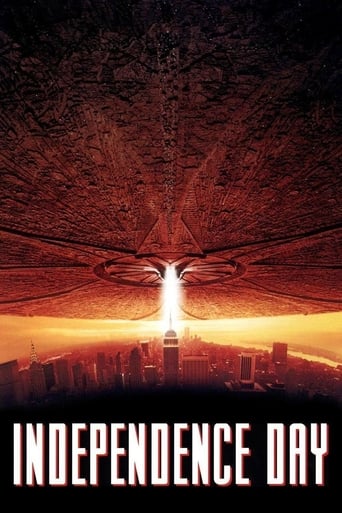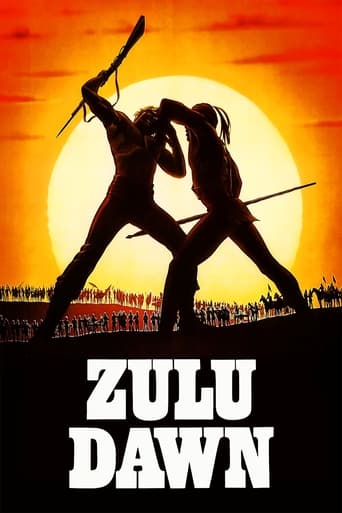
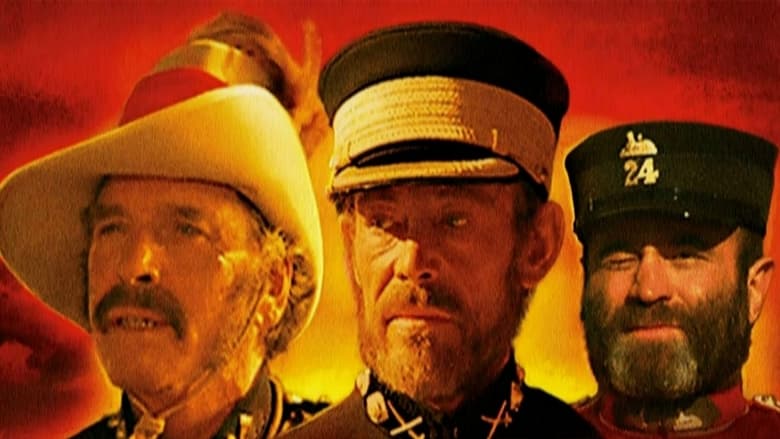
Zulu Dawn (1979)
In 1879, the British suffer a great loss at the Battle of Isandlwana due to incompetent leadership.
Watch Trailer
Cast


Similar titles
Reviews
This film is true to most events that happened, except it obviously points to Chelmsford and the general staff as bungling English gentlemen playing at war. He actually won the war before his replacement could take his command.We know he split his forces, so everyone NOW says he made a mistake. He had no intel, no idea where the enemy where, he went looking. So why are the independent cavalry forces who had not scouted ahead of his infantry somehow portrayed as heroes. The film itself is excellent it's just the pointing of blame is as bad as then.
This well-intentioned prequel to the superior ZULU is an unfairly maligned movie that almost died on its box-office release. This is a real shame, because in many instances it resembles the genre of the 'epic' movie, with magnificent African location photography and culminating in one of the most ferocious, frightening, and unstoppable battle sequences put on film. The first hour or so is a little slow, as there are many characters to be introduced, although as is almost always the case with these 'all star' productions, most of the big names have very little to do.Still, bit players like Bob Hoskins and Denholm Elliott put in small performances (the former as comic relief, the latter quite poignant) whilst the heavy stuff is left to the likes of Lancaster (as an Irish hero) and O'Toole (as a leader, making the same mistakes as he does in TROY). In addition, a literate script helps the viewer in understanding the principles behind the battle and the reasons that it turned into a massacre for the British (underestimating the enemy and poor supplies are the biggest issues here). In all a very good movie, well directed by Douglas Hickox and a fine portrayal of a historical event.
Rorke's drift on steroids This is the main 1879 battle, called Isandlwana, to which Rorke's Drift ("Zulu") was ancillary. The overall battle was complicated, involving several semi-independent columns but briefly the narrative runs something like this. Some 1,200 British troops and irregulars under Lord Chelmsford crossed the river into Zululand, armed with single-shot rifles and four cannon, to find themselves facing ten times that number of Zulu warriors armed with only short spears and hide shields. The Zulu attacked some of the columns. The British were wiped out. Back at the main base, Chelmsford was staggered. Britain was stunned. There had been many brushfires and rebellions along the edges of the British empire but they'd all been suppressed by modern technology and discipline. This was an unmitigated defeat by natives, much like Custer's last stand. In both cases the native victories were short lived, and Chelmsford was replaced.The film, as far as the untutored viewer can tell, is pretty accurate, down to the green patches on the collars of the foot soldiers. The photography is unimpeachable. And what a cast! Bob Hoskins, Peter O'Toole as Chelmsford, Burt Lancaster, Simon Ward, John Clay, a brief appearance by John Mills, and other familiar faces here and there.The story is told roughly in three acts. (1) The complacent British sit around at a garden party drinking tea and teaching the ladies in their frothy dress how to play cricket. (2) A confident Chelmsford and his subordinates cross the Tugela River, hobbled by their supplies being hauled in slow-moving ox carts, looking for Zulu to engage. (3) The Zulu engage and after a gallant fight the British are killed, although the colors are finally retrieved.There isn't a flaw in any of the performances and the vast, ominous, plains with their occasional crouching mountains is perfectly captured, but the second-unit direction is clumsy and so is the script. At least I couldn't quite keep straight who was where and exactly when things were happening. We get a few glimpses of a map but not nearly enough to give a clear picture of events. Further, there are moments when I felt the second-unit director -- the guy shooting the action sequences -- must have been asleep or juiced out on millet beer. In a couple of shot, the red-coated foot soldiers are reloading and firing wildly while the Zulu extras wander around among them, as if wondering what they're supposed to do next. Not a knock on the extras. I'm sure they were glad to get the work, as I was when I was an extra.What we might call the internal stories -- the little touches of human relationships and character -- which must all have been fabricated since no one survived, are familiar. The terrified rookie more or less adopted by the tough color sergeant. The preacher muttering warnings that are ignored. The conviction that the enemy is unable to successfully engage our own forces -- you know, the natives with their spears and arrows and slings and whatnot, against our technology?Perhaps that belief is the fundamental message of the movie. My God. It doesn't matter whether the battle is an air attack on Pearl Harbor, a defeat of Force Smith in Korea, the Seventh Cavalry at Little Big Horn, the first battle of Bull Run, the punitive expedition against Pancho Villa or Ia Drang in Vietnam. It always comes as a big surprise to find that we've underestimated the enemy. The technology doesn't get the job done. The show of force doesn't cow him. Fortunately for us, these defeats never prompt us to challenge our primitive beliefs in our invincibility.
"Zulu" (1964) was an absolutely brilliant battle-epic: tightly directed, solidly photographed, well edited, with strong performance from all (including a young Michael Caine). Despite it's violence (more than half the film is the battle), it never lost sight of its primary themes - the remarkable courage of common men, the profound differences between the two cultures in conflict."Zulu Dawn" is a weak follow-up. In "Zulu" the characters were richly delineated; in "Zulu Dawn" we never get to know any of them, to the point where we feel little sympathy for them. It is also remarkable that the strongest acting comes from those playing very brief roles as Zulus - the Zulu Chief, the warrior who escapes to fight again, etc. All the white actors look poorly directed. And Burt Lancaster's accent is atrocious.Beautiful photography, exciting final battle sequence, and an historically accurate narrative that is allowed to unfold its own themes; but too diffusely directed, and ultimately feeling incomplete.




